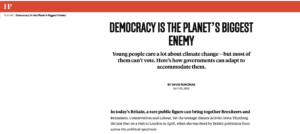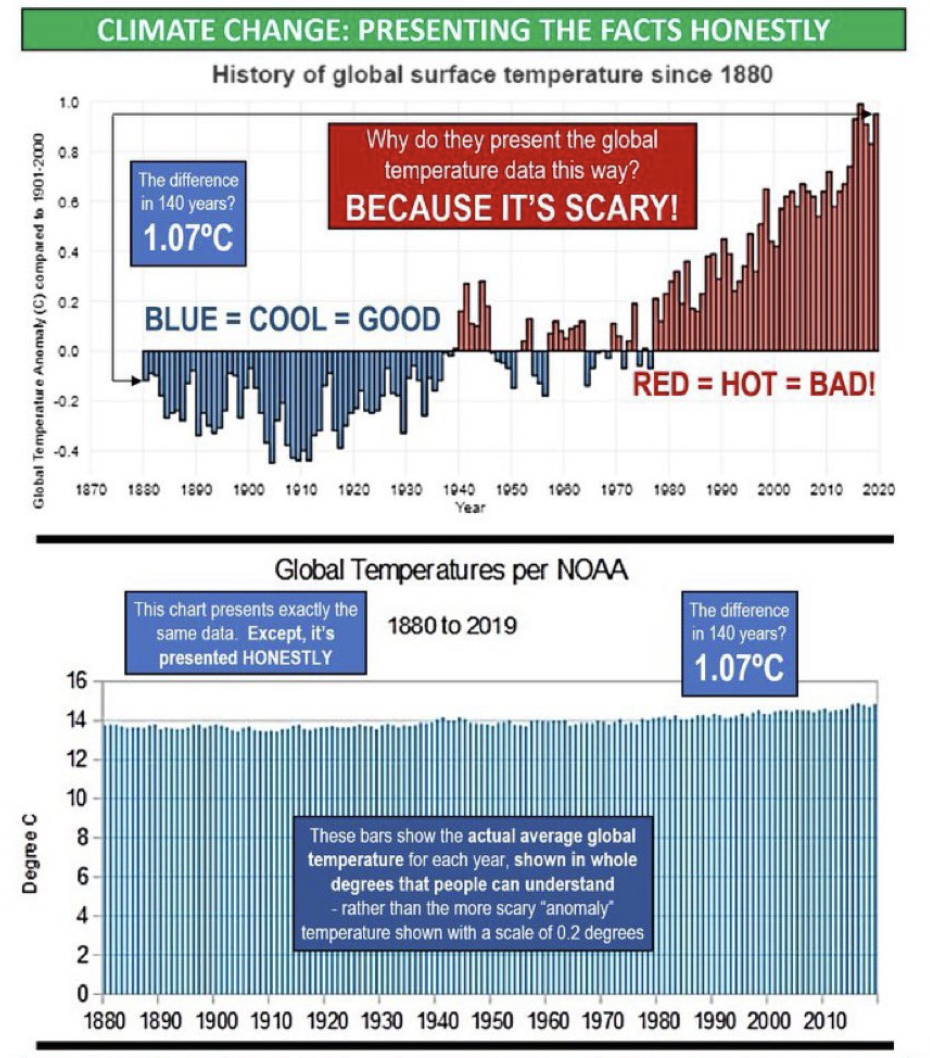https://foreignpolicy.com/2019/07/20/democracy-is-the-planets-biggest-enemy-climate-change/
BY DAVID RUNCIMANDavid Runciman is a politics professor at Cambridge University and the author of How Democracy Ends. This story appears in the Summer 2019 print issue.
One way to make that happen would be to redress the imbalance directly by lowering the voting age. Watching the 16-year-old Thunberg put Britain’s political leaders in their place, it was hard to think of a good reason why she should not be allowed to vote. …
Bridging the generational divide is likely to require other kinds of institutional change. The evidence of the last 30-plus years of climate politics suggests that electoral democracy is not well suited to reaching a consensus on what is to be done. The inevitable partisanship of this form of politics reinforces wider social divisions. Different perspectives on the long-term future get turned into polarized positions on climate change, making it harder to reach a shared perspective on carbon emissions and renewable energy. Party politics drowns out the pursuit of common ground.
…
If electoral democracy is inadequate to the task of addressing climate change, and the task is the most urgent one humanity faces, then other kinds of politics are urgently needed. The most radical alternative of all would be to consider moving beyond democracy altogether. The authoritarian Chinese system has some advantages when it comes to addressing climate change: One-party rule means freedom from electoral cycles and less need for public consultation. Technocratic solutions that put power in the hands of unelected experts could take key decisions out of the hands of voters. …
But there are two reasons to doubt that this is what the climate emergency needs. First, any transition from a democratic to a post-democratic system would be massively disruptive. The barriers in the way of action on climate are also barriers to other forms of radical political change. There would be resistance, including from older generations. Second, it would not satisfy Thunberg’s generation either. She was not asking for less democracy. She was asking for a democracy in which she could be heard.
…
Another alternative would be more radical direct democracy. Politicians who are unmoved by electoral threats, and citizens otherwise committed to status quo policy, can sometimes be jolted into action by street protests, especially if they are sustained over long periods of time.
..
Channeling more energy into these other forms of democracy—into citizens’ assemblies and civil disobedience, rather than elections and party-building—will change our politics drastically. But it may be the only way to ensure our planet does not change beyond recognition.




